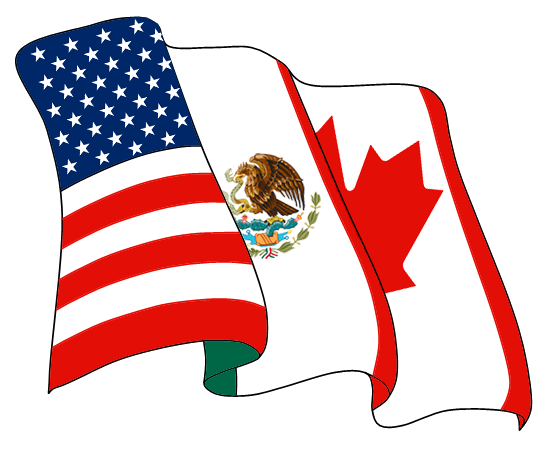
by Deanna Matzen, Operations Manager
Earlier this summer, an Earth Ministry member who attended the Holden Retreat, asked if Earth Ministry could help educate the masses about the difference between Fair Trade and Free Trade. Obligingly, I said "Yes, I'll take up the matter on the Earth Ministry blog!" While I'm not an expert or an economist, I am adept at Google research and distillation. Here are my thoughts. If you, dear reader, can contribute to the discussion please feel free to post comments.
Alright, here we go:
What is Free Trade?
 Free trade is an economic system that allows goods, services, labor, and capital to flow between countries without restrictions or trade barriers such as taxes and tariffs, regulations and subsidies. It does not necessarily mean that there will be no taxes or tariffs but that the government does not seek to hinder international trade using such restrictions. Free Trade, of course, is the basis of the North American Free Trade Agreement, one of the popular topics in this current presidential election.
Free trade is an economic system that allows goods, services, labor, and capital to flow between countries without restrictions or trade barriers such as taxes and tariffs, regulations and subsidies. It does not necessarily mean that there will be no taxes or tariffs but that the government does not seek to hinder international trade using such restrictions. Free Trade, of course, is the basis of the North American Free Trade Agreement, one of the popular topics in this current presidential election.According to the Britannica Concise Encyclopedia, "The theoretical case for free trade is based on Adam Smith's argument that the division of labor among countries leads to specialization, greater efficiency, and higher aggregate production. The way to foster such a division of labor, Smith believed, is to allow nations to make and sell whatever products can compete successfully in an international market." Free trade is assumed to provide perfect access to market and credit as well as perfect market information. In theory, it’s just the ticket!
What is Fair Trade?
 According to Wikipedia, Fair trade is an organized social movement and market-based model of international trade which promotes the payment of a fair price as well as social and environmental standards in areas related to the production of a wide variety of goods.
According to Wikipedia, Fair trade is an organized social movement and market-based model of international trade which promotes the payment of a fair price as well as social and environmental standards in areas related to the production of a wide variety of goods.The most common definition of Fair Trade comes from FINE, an association of the four main fair trade networks (Fair-trade Labeling Organizations International, International Fair Trade Association, Network of European Worldshops and European Fair Trade Association): "Fair trade is a trading partnership, based on dialogue, transparency and respect, which seeks greater equity in international trade. It contributes to sustainable development by offering better trading conditions, and securing the rights for, marginalized producers and workers - especially in the poor global South. Fair trade organizations (backed by consumers) are engaged actively in supporting producers, awareness raising and in campaigning for changes in the rules and practice of conventional international trade."
Free Trade vs. Fair Trade
The flaw in the Free Trade theory is that it supposes perfect competition. In a world where government subsidies result in artificially low prices (i.e. agricultural products); producers in countries without subsidies are not competing in a fair or perfect marketplace. This is why huge, subsidized US corn agribusiness producers are bankrupting tiny Mexican farmers.
It is also the case that countries that protect their environment, supply health care to workers, and promote a living wage are penalized under a free trade system.
So while the four major Fair Trade labeling organizations support Free Trade in theory, they argue that perfect market information and perfect access to the market and credit do not exist in developing countries. In reality, there is no such thing as free trade in the Adam Smith sense. And by the way, even Adam Smith knew that.
One contrast between Free Trade and Fair Trade is that a Free Trade system encourages jobs to be exported to other countries with cheaper labor. In a world-wide free market system, the job goes to the lowest bidder. Whereas a Fair Trade system is not looking to shift jobs but to create a market place for goods from developing countries that provide livable wages. Fair Trade laborers are not providing tech support or manufacturing American goods. Rather, a market is created in a developed country for coffee and other agricultural goods, products they would already produce.
I hope that in the future when you see an item labeled "Fair Trade" that you will have a better understanding of what that label represents and how it helps to bring social and environmental justice in developing countries.
Other sources:
http://www.answers.com/topic/free-trade
http://www.answers.com/topic/fair-trade
I’d love feedback from our readers about this article!
 One way to support Earth Ministry and Fair Trade is to purchase coffee, tea, and chocolages through Grounds for Change. Earth Ministry even has its own blend of triple-certified coffee - Fair Trade, shade grown, and organic!
One way to support Earth Ministry and Fair Trade is to purchase coffee, tea, and chocolages through Grounds for Change. Earth Ministry even has its own blend of triple-certified coffee - Fair Trade, shade grown, and organic!
3 comments:
This is a great article. Is there a way I can email it? It's worth passing on?
One way is to highlight it, copy and paste it as a Word document, and send it as an attachment to an email.
You can also click on the icon at the end of the article that looks like an envelope!
Post a Comment